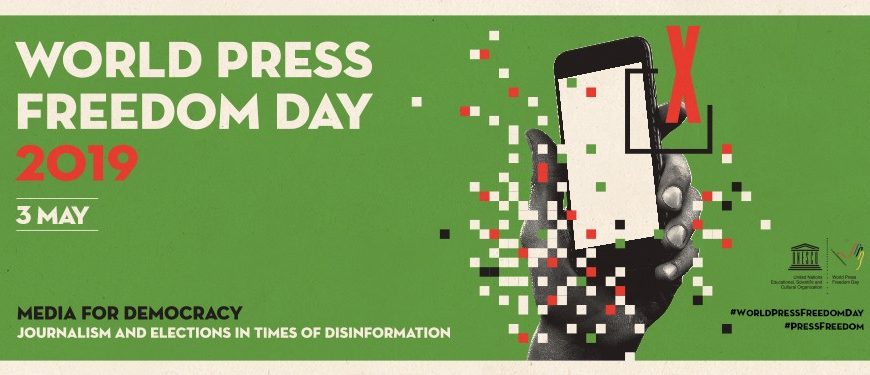International: Every year, 3 May is a date which celebrates the fundamental principles of press freedom, to evaluate press freedom around the world, to defend the media from attacks on their independence and to pay tribute to journalists who have lost their lives in the exercise of their profession. World Press Freedom Day was proclaimed by the UN General Assembly in 1993 following a Recommendation adopted at the twenty-sixth session of UNESCO’s General Conference in 1991. This in turn was a response to a call by African journalists who in 1991 produced the landmark Windhoek Declaration on media pluralism and independence.
At the core of UNESCO’s mandate is freedom of the press and freedom of expression. UNESCO believes that these freedoms allow for mutual understanding to build a sustainable peace.
It serves as an occasion to inform citizens of violations of press freedom – a reminder that in dozens of countries around the world, publications are censored, fined, suspended and closed down, while journalists, editors and publishers are harassed, attacked, detained and even murdered.
It is a date to encourage and develop initiatives in favour of press freedom, and to assess the state of press freedom worldwide.
3 May acts as a reminder to governments of the need to respect their commitment to press freedom and is also a day of reflection among media professionals about issues of press freedom and professional ethics. Just as importantly, World Press Freedom Day is a day of support for media which are targets for the restraint, or abolition, of press freedom. It is also a day of remembrance for those journalists who lost their lives in the pursuit of a story.
The main celebration of World Press Freedom Day 2019 will take place in Addis Ababa, from 1 to 3 May 2019. The event will provide a platform for multiple actors to exchange on current issues, threats and achievements concerning freedom of the press.
The overall theme of the event will be the role of media in elections and democracy. A wide range of sessions (plenaries, debates, lightning talks, etc.) will address different aspects of the overall theme.
Some 100 national events around the world are expected to complement the main celebration.
The attendance of the UNESCO Director-General, Audrey Azoulay, as well as of high-level government representatives is expected. Participants will also include representatives of civil society, media organizations, professional associations, academia and the judiciary.
On 2 May, the UNESCO Director-General will award the UNESCO/Guillermo Cano World Press Freedom Prize to an individual or organization that has made an outstanding contribution to the defence of press freedom.
The event will also host an academic conference on the safety of journalists which will allow researchers from different disciplines to share and discuss recent research. This will be the fourth edition of the conference, aimed at bridging the gap between academic research, policy-making and journalism.
As in the previous years, WPFD will host a Youth Newsroom, which will bring on board young journalists and journalism students to cover the event and expand their reporting skills.
A number of cultural events and performances will be included in the programme.

